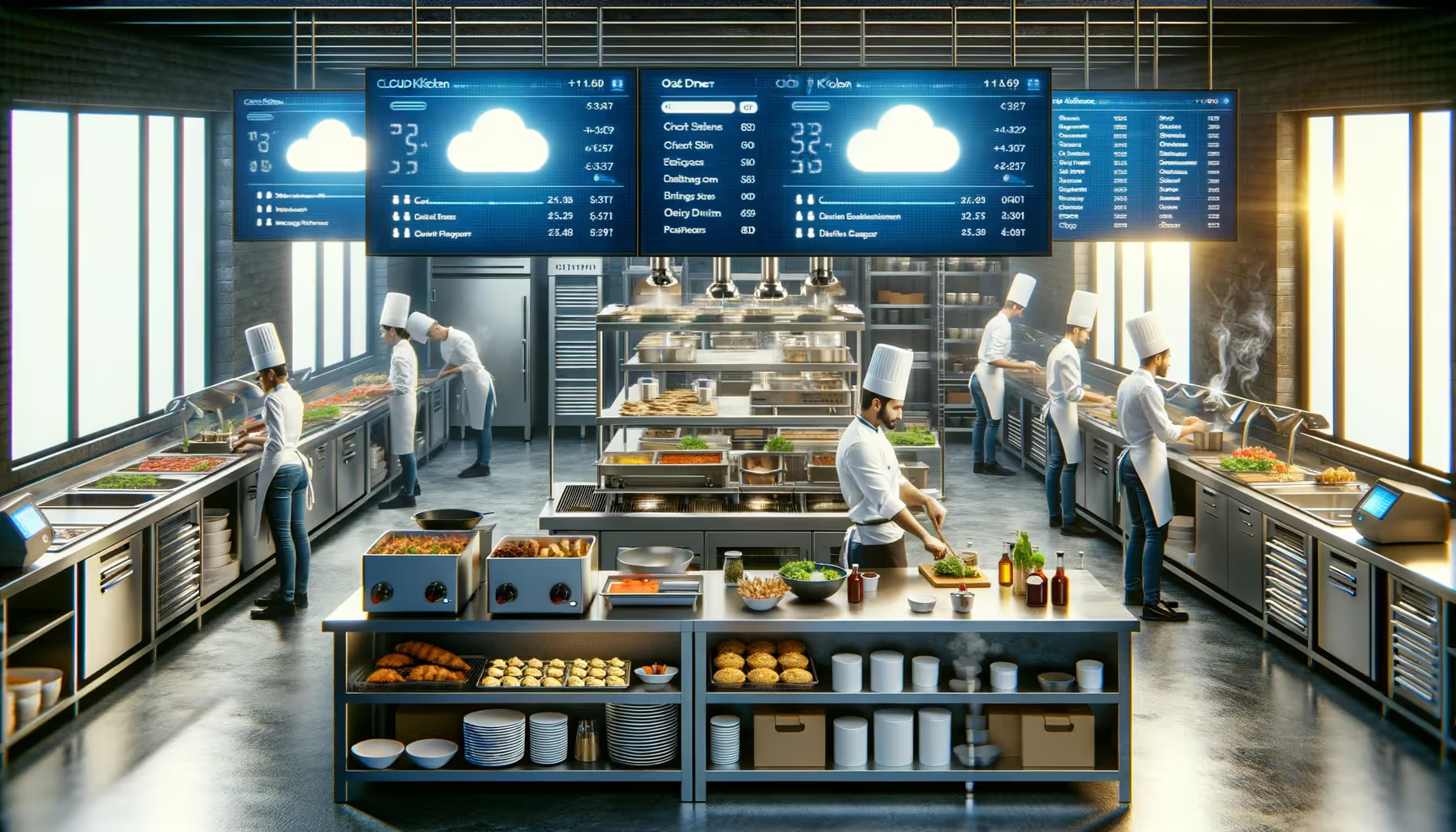Franchise Opportunities By Industry
Franchise Opportunities By Location
Franchise 101
By Investment Level
Franchise Consultant
White Paper
Playbook


In today's ever-changing business landscape, franchising has become an exciting avenue for entrepreneurs and investors. It offers a proven path to success and growth while tapping into established markets. In this comprehensive guide, we'll explore the industries that are perfect for franchising. From the vibrant world of fitness and dining to childcare services and cutting-edge technology, we'll take a closer look at diverse sectors that have embraced franchising. Additionally, we'll uncover the compelling advantages of this business model, including boosted brand recognition, higher success rates, and the ability to harness bulk buying power. Join us on this journey as we delve into the dynamic realm of franchising and uncover the industries ready for expansion and prosperity.

Within the realm of franchising, the fitness industry stands as a powerhouse of opportunity. With an increasing global emphasis on health and wellness, fitness franchises have seen remarkable growth and demand. Aspiring entrepreneurs in this sector have the chance to offer fitness enthusiasts innovative workout experiences, personalised training programs, and state-of-the-art facilities. Whether it's boutique studios, 24/7 gyms, or specialised fitness concepts, the fitness industry offers a diverse range of franchise options to cater to various fitness goals and preferences. Not only do fitness franchises empower individuals to achieve their fitness objectives, but they also enable franchisees to tap into a thriving market while contributing to a healthier society.

The food and restaurant industry has carved out a prominent space within the franchising landscape. From iconic fast-food giants like McDonald's and Subway to trendy fast-casual concepts and fine dining establishments, this sector boasts diverse and enticing franchise opportunities. Entrepreneurs can choose to align themselves with established brands that offer well-loved menu items or explore niche markets that cater to specific culinary preferences. The beauty of franchising in the food and restaurant industry is the immediate recognition and loyalty associated with beloved food offerings. By investing in a restaurant franchise, individuals not only tap into a ready-made customer base but also have the chance to leave a lasting impression on diners, creating memorable culinary experiences. Success in this sector requires a passion for food, dedication to quality, and a keen understanding of customer preferences. With the right location, operational excellence, and a commitment to delivering exceptional dining experiences, a food and restaurant franchise can become a rewarding venture.

The child care industry is experiencing substantial growth, driven by the increasing demand for reliable childcare services. For entrepreneurs looking to make a meaningful impact while building a successful business, child care franchises offer an appealing opportunity. These franchises typically provide a nurturing and safe environment for children, offering structured educational programs, engaging activities, and experienced staff. The importance of high-quality childcare cannot be overstated, making it a vital service for working parents. By investing in a child care franchise, individuals can contribute to the well-being and development of young minds while also enjoying the financial benefits of a growing market. Success in this sector requires a genuine commitment to childcare excellence, adherence to safety standards, and the ability to create a warm and inclusive atmosphere. Child care franchises not only provide a valuable service to families but also offer franchisees the satisfaction of knowing they are positively impacting the lives of children and their parents.

Coffee shops have woven themselves into the fabric of daily life, offering a blend of caffeine, community, and comfort. The coffee shop industry encompasses a diverse range of franchise concepts, from global coffeehouse chains to cozy local cafes. Each offers a unique atmosphere and a menu tailored to different tastes, whether it's artisanal coffee, specialty beverages, or a cozy space for patrons to work, study, or socialize. Investing in a coffee shop franchise is an opportunity to become part of people's daily routines, providing a welcoming environment where customers can savor their favorite brews. The success of a coffee shop franchise hinges on factors like location, branding, and customer experience. Franchisees must create a space that fosters community and relaxation while serving high-quality beverages and snacks. By doing so, coffee shop franchises can become cherished gathering spots and profitable ventures for their owners.

The technology sector stands as a dynamic and ever-evolving domain, making it an enticing field for those considering franchising. Technology-related franchises encompass a wide range of services, from IT support and computer repair to digital marketing agencies and software development companies. These franchises offer essential solutions in an increasingly digital world, supporting both businesses and individuals. With technology playing an integral role in modern life, investing in a tech franchise allows entrepreneurs to stay at the forefront of innovation. It also enables them to assist clients in navigating the complexities of the digital landscape, from safeguarding data to optimizing online presence. Success in this sector calls for a deep understanding of technology trends, a commitment to continuous learning, and the ability to provide tailored solutions to clients' tech needs. By doing so, technology franchises can not only thrive but also contribute to the growth and efficiency of businesses across various industries.

The auto repair industry is a cornerstone of franchising, offering a wide array of opportunities for individuals with a passion for automobiles and mechanical expertise. Auto repair franchises provide essential services, including vehicle maintenance, diagnostics, and repairs. With a growing number of vehicles on the road, the demand for reliable auto services remains steady. Investing in an auto repair franchise allows entrepreneurs to tap into a market where vehicles are a part of everyday life. Whether it's routine maintenance, brake repairs, or engine diagnostics, auto repair franchisees play a crucial role in keeping vehicles safe and roadworthy. Success in this industry requires technical know-how, a commitment to customer satisfaction, and the ability to keep up with advancements in automotive technology. Auto repair franchises not only offer a chance to be part of the automotive ecosystem but also provide valuable services to the community, ensuring that vehicles run smoothly and safely.

The senior care industry is experiencing remarkable growth due to the aging population and the increasing need for comprehensive care and support for seniors. Senior care franchises encompass a wide range of services, including in-home care, assisted living facilities, and memory care units. These franchises are dedicated to enhancing the quality of life for seniors while providing peace of mind to their families. By investing in a senior care franchise, entrepreneurs can make a profound difference in the lives of elderly individuals, offering companionship, medical assistance, and emotional support. Success in this sector requires a deep sense of empathy, a commitment to upholding senior dignity, and adherence to stringent care standards. Senior care franchises not only offer the potential for financial success but also the opportunity to contribute to the well-being of seniors and their families, creating a positive impact on an aging population.

The pet services industry is a dynamic and growing sector that caters to the needs and desires of pet owners. Pet services franchises cover a wide spectrum of offerings, including pet grooming, boarding, training, and veterinary care. As pets become cherished members of families, the demand for high-quality pet services continues to rise. Investing in a pet services franchise allows entrepreneurs to tap into a market where pet owners seek the best care and companionship for their furry friends. Whether it's pampering pets with spa treatments, providing safe and comfortable boarding facilities, or offering expert training, pet services franchisees play a vital role in enhancing the well-being of pets and their owners. Success in this industry requires a genuine love for animals, a commitment to their welfare, and the ability to create a nurturing and safe environment. Pet services franchises not only offer the potential for financial success but also the opportunity to enrich the lives of pets and their devoted owners, fostering strong bonds and happy tails.

The e-learning industry has seen unprecedented growth and transformation in recent years, making it a fertile ground for franchising opportunities. E-learning franchises offer a diverse range of educational programs and resources, from online courses and tutoring services to language learning platforms and test preparation programs. With the convenience and accessibility of online education, more students of all ages are turning to e-learning to achieve their academic and professional goals. Investing in an e-learning franchise enables entrepreneurs to be part of this educational revolution. It allows them to provide valuable learning experiences and support to individuals seeking knowledge and skills development. Success in this sector requires a passion for education, adaptability to evolving technology, and a commitment to delivering high-quality educational content. E-learning franchises not only offer the potential for financial success but also the satisfaction of helping learners reach their full potential and access education on their terms.

Cloud kitchens, also known as ghost kitchens or virtual kitchens, represent an innovative and rapidly growing segment of the food service industry. These kitchens focus solely on food preparation and delivery, eliminating the need for a traditional dine-in space. Cloud kitchen franchises allow entrepreneurs to enter this burgeoning market, providing a range of cuisines and menu items for delivery and takeout. The advantages of cloud kitchens include lower overhead costs, increased efficiency, and the ability to cater to a wide customer base through online ordering platforms. Success in this industry requires effective online marketing, efficient kitchen operations, and a keen understanding of customer preferences. Cloud kitchen franchises offer a unique opportunity to deliver delicious food directly to customers' doors, capitalizing on the growing trend of food delivery services and convenience in dining options. Entrepreneurs in this sector can meet the demand for quality food in a fast-paced world while optimizing their profitability.

The retail sector remains a classic and enduring domain within the world of franchising, encompassing a broad spectrum of product categories and business models. Retail franchises include apparel stores, electronics shops, home decor boutiques, and specialty gift stores, among others. These franchises cater to consumer needs and preferences, providing a curated selection of products and personalized shopping experiences. Investing in a retail franchise allows entrepreneurs to tap into the timeless appeal of in-person shopping, where customers can touch, try on, and experience products before making a purchase. Success in this sector requires a knack for merchandising, a commitment to excellent customer service, and the ability to adapt to changing consumer trends. Retail franchises not only offer the potential for financial success but also the opportunity to create unique shopping destinations that resonate with local communities and cater to diverse tastes. Entrepreneurs in this industry can find their niche and provide customers with memorable retail experiences.
Exploring the dynamic realm of franchising unveils a strategic approach to business expansion and collaboration that goes beyond traditional entrepreneurship.
Bulk buying power in franchising leads to:
Franchising presents a compelling pathway to entrepreneurship, offering a host of benefits that can pave the way for business success. From the assurance of a proven business model to the power of brand recognition, franchisees can enter the world of business with a lower risk profile. The collective strength of bulk buying amplifies profitability, while ongoing support and training from franchisors provide the necessary tools for growth.
Whether you're drawn to the restaurant industry, eager to provide senior care, or looking to make your mark in e-learning or cloud kitchens, franchising can be a rewarding journey. As you explore the diverse industries presented in this guide, keep in mind the advantages that franchising brings—established systems, trusted brands, and the camaraderie of a supportive franchise community.
Franchising embodies the fusion of independence and partnership, allowing entrepreneurs to take ownership of their destinies while benefiting from the wisdom and experience of established brands. As you venture into the world of franchising, may your path be illuminated by the promise of success, innovation, and the realization of your entrepreneurial dreams. It's a journey worth embarking on—one that can lead to a prosperous and fulfilling future.